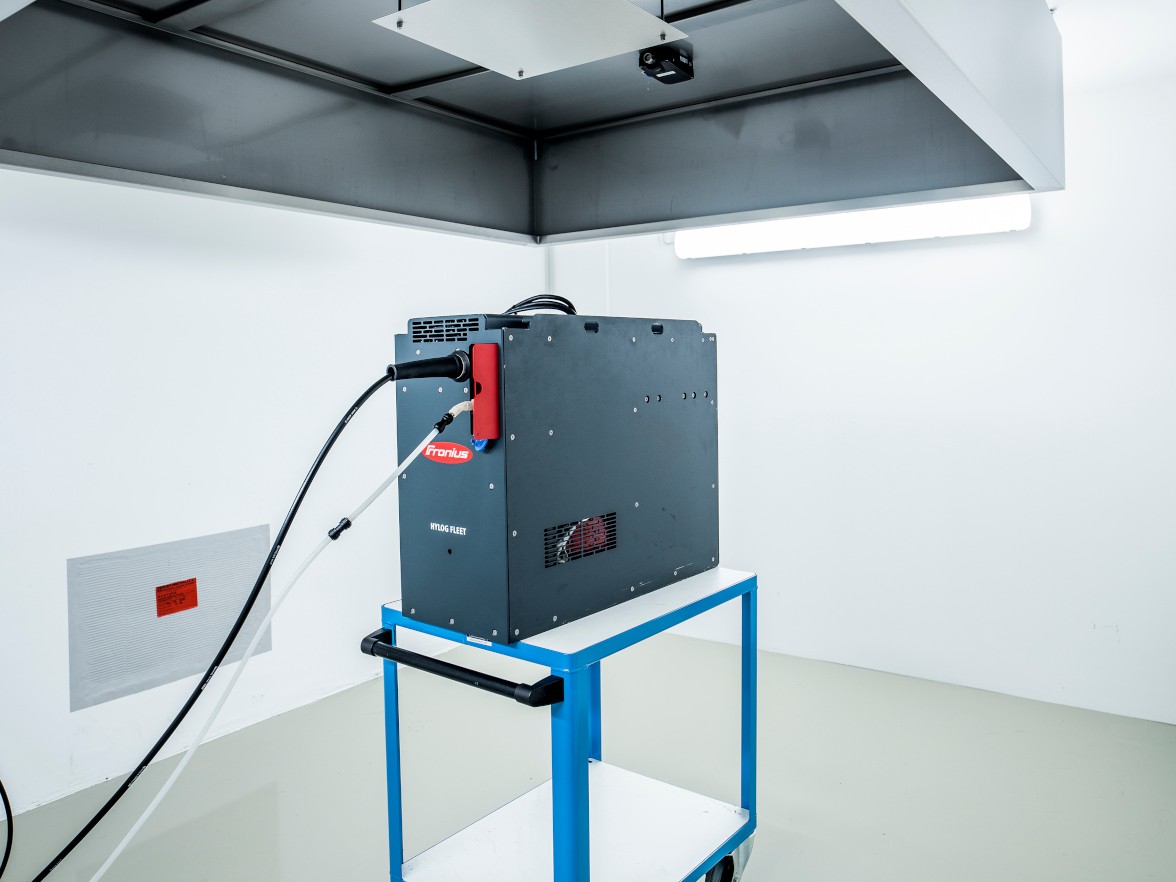Successful development of cost-efficient production of hydrogen operated transport systems
Quantum leap in production efficiency through EU research project INLINE STEYR, AT. Forklift trucks with fuel cells are shaping the future of mobility in the logistics industry. The three-year lasting project improved the production of fuel cell systems for forklift trucks. Fuel cell systems are almost exclusively manufactured using manual production processes, which has a negative effect on manufacturing costs. Project coordinator PROFACTOR and the four partners – including industrial partners Fronius International GmbH, ElringKlinger and OMB and scientific partner KIT wbk – have developed the design for a production line in which fuel cell systems can be manufactured semi-automatically. This design was now been successfully presented at partner Fronius in Wels, including hardware demonstrators of assistance systems for monitoring the assembly process, the smart camera sensor and semi-automated final testing; all of this makes a significant contribution to improved manufacturing efficiency. In November, all partners came together at partner Fronius for the final demonstration of the developed assistance systems and the improved end-of-line test. Fronius set up a prototypic manufacturing line for the mobile fuel cell system, in which the redesigned Media Supply Unit (MSU) and the improved tank valve were included. The measured cycle times showed a reduction of about 28% in total for the manufacturing and testing of the system, "This is a significant improvement in the manufacturing and testing process of the HyLOG Fleet systems. Not only has the cycle time improved, also the quality in the manufacturing process increased," says Mathias Griesbaum, Project Manager for the INLINE project at Fronius International GmbH. Smart Camera detects errors The Smart Camera sensor, developed from partner KIT wbk – a sensor that supports the production staff during assembly of the highly sensitive battery modules – was also presented during the final presentation. The usage of this sensor in the manufacturing process reduces the false mounting of the battery cells to zero and improves the safety of the worker during this assembly phase 100%. Space Pen supports production staff An additional innovation for the assembly process was made by PROFACTOR. To improve the simplification of the training of the projection system of the assisted assembly station, the Space Pen was developed. This technology allows the worker easily to train screwing positions to the robot, can aid the worker during quality control processes and improve traceability by connecting detected defects to serial numbers. Intelligent testing reduces final inspection time by half The final testing of the fuel cell system is the most time-consuming aspect of the entire production process. The semi-automated testing system developed by manufacturer Fronius reduces the testing time by nearly half. PROFACTOR developed additionally a prediction visualization tool, which immediately alerts the worker if the test will fail; this also had a significant impact for the reduction of the testing time The results represent a quantum leap in high-tech manufacturing Daniela Kirchberger, Project manager of INLINE at PROFACTOR, emphasises the fact that cost-effectiveness was increased during the project's duration: "The result of the project shows a reduction of about 28% reduction in the assembly time of the whole product by optimizing the manufacturing and production process. This represents a quantum leap for these high-tech products." Project title: An innovative Design of a Flexible, Scalable, High Quality Production Line for PEMFC Manufacturing Funding: H2020-JTI-FCH-2016-1 The project leading to this application has received funding from the Fuel Cells and Hydrogen 2 Joint Undertaking under Grant Agreement No 735367. This Joint Undertaking receives support from the European Union's Horizon 2020 research and innovation programme and Hydrogen Europe and N.ERGHY.



